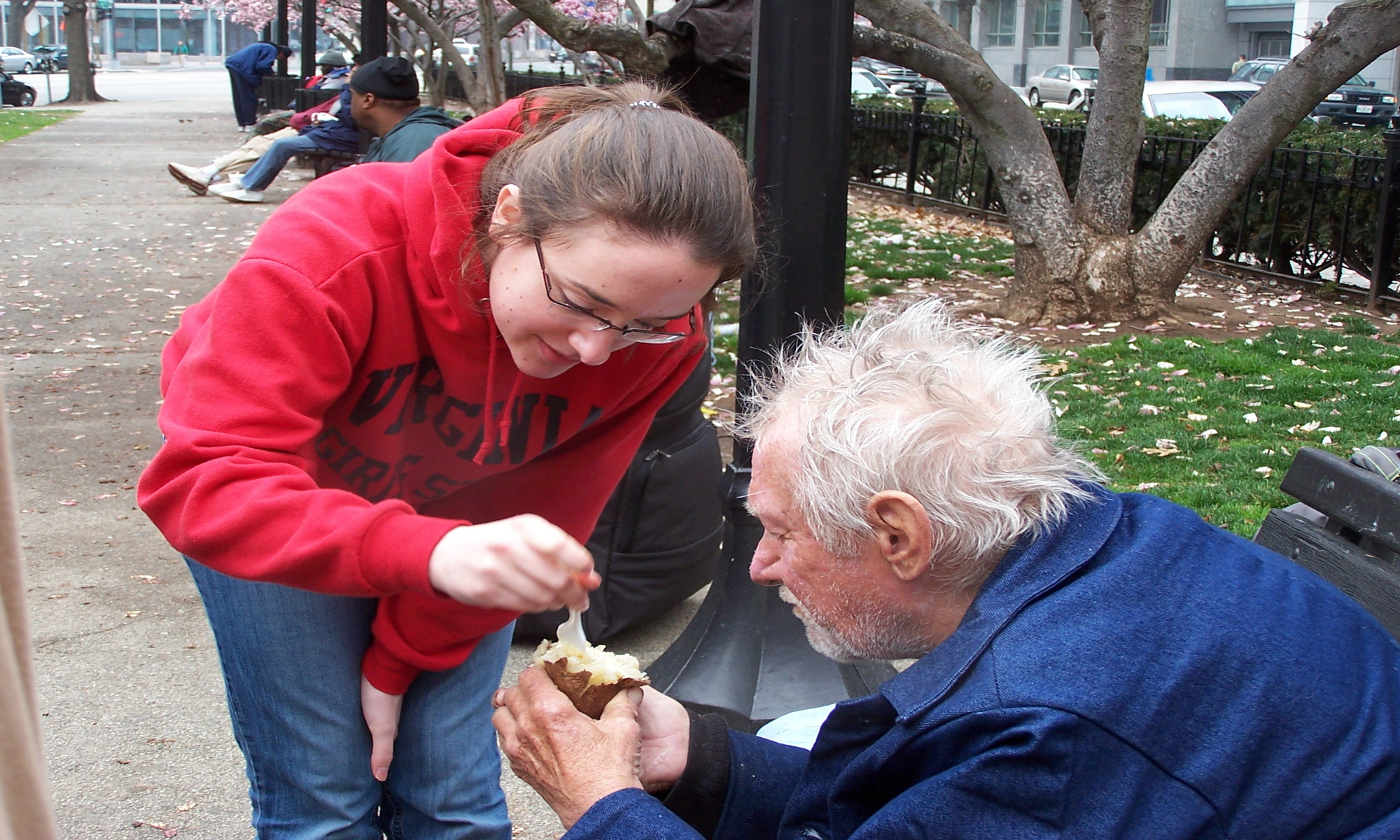This is the third in a series of posts about where the solutions to homelessness truly begin. They are not in the opportunities, training or services offered to homeless people. They are in the hearts, minds and souls of the homeless themselves. The longer I spend in ministry with these amazing people, the more I learn of the importance of attitude and that nothing else we do to address their challenges will work if their hearts, minds and souls are not in the right place.
To read the first two installments, click on the links:
http://teensopposingpoverty.wordpress.com/2012/09/17/heart-mind-and-soul-part-1-jeffs-story/
His street name was “Black”. He was homeless for over 12 years. Drugs and alcohol were his life, but on Sunday afternoons when the youth volunteers from Teens Opposing Poverty (TOP) came to serve, he was always straight and sober. For years, I just made small talk with him. He spent most of his time talking with the teens. Several of them became friends with him. It was a few years before I found out his real name was William.
Then in 1995 something terrible happened. William almost lost his life in a fire. As he lay half-conscious on a hospital gurney, he watched his cousin die. That horror was followed by 6 months of skin grafts and the loss of his left leg. He had a breathing tube stuck down his throat for so long that it paralyzed half his vocal cords.
After he got out of the hospital, William spent nearly three more years on the street until he was able to secure Social Security Disability. It was during these three years that he went from being someone we served to one of my best friends. He was, and still is, one of the most humble people I know, but he also began speaking with the deserved authority of someone who daily had to live with pain that most of us could not imagine.
When he spoke to our volunteers, William wielded his testimony like a knife cutting into our complacent hearts. He helped us to see his struggles and shared with us his belief that God saved him for a reason. In telling his story, he let the youth know that they were here for a reason, too, and that God can use even the bad things in our lives for good.
I’ll never forget the day we helped him get into his first apartment. He stepped inside and closed the door, turning the lock several times. Then he flipped the light switch on and off and finally looked up at the ceiling. “Look,” he said, “No stars.” He hasn’t been homeless in more than 13 years since then. But unlike many who get off the street, William kept going back and keeping in touch with the people he used to live with. Little did I know what a valuable asset he would become to TOP because of that.
In the weeks and months that followed, William met us on every homeless ministry trip we took. He was great with the teens, taking the shy ones under his wing until they were comfortable enough to start talking to the people we served.
As his confidence grew, he offered suggestions on things we could do differently, other sites where we could serve and better ways to connect with our homeless friends. I wasn’t the only one who recognized William’s growth and willingness to assume responsibility and assert authority. The teens did, too, and started turning to him when they had questions.
When TOP was able to hire staff, William became the coordinator of our homeless ministry in Washington, DC. Now he develops new Street Ministry Outreaches and shares his powerful testimony with churches and other groups. He went from being one of the homeless guys to a ministry professional.
I haven’t just seen this scenario play out in William’s case. Giving those we serve a chance to become servants is a crucial part of our ministry. Everyone has gifts to give, talents to use and faith to share. When people have an opportunity to contribute, they hold their heads a little higher. They remember that they can make a difference.
We must remember that we are in ministry WITH the poor, not to them. Let’s not get so wrapped up in giving to others that we fail to give ourselves a chance to receive. Understanding this one simple principle can bring out the best in all of us.
God’s grace to you,
Steve Jennings, Executive Director
